Keynote Speakers
Dr. Pascale Fung
Professor at The Hong Kong University of Science & Technology
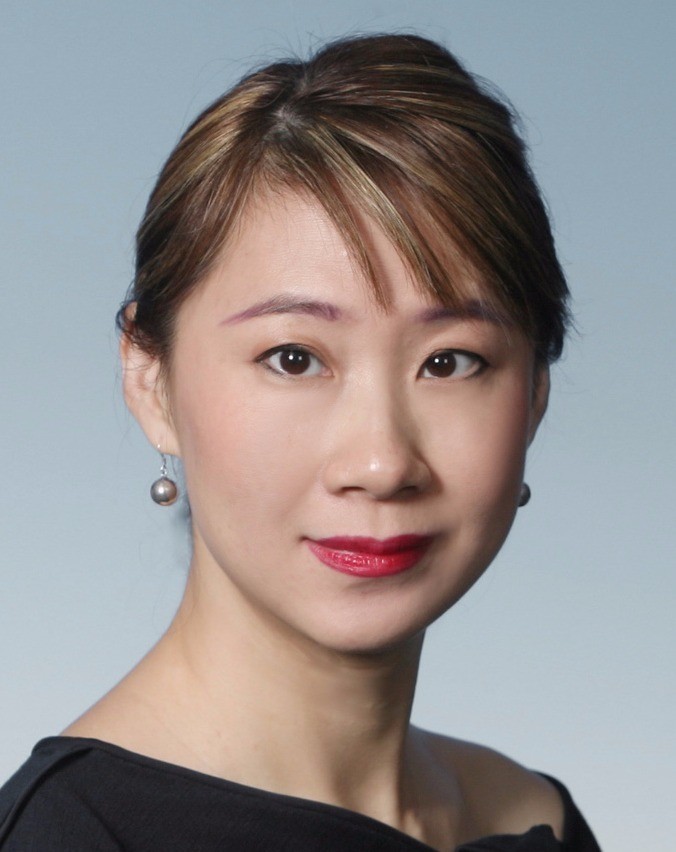 Pascale Fung is a Professor at the Department of Electronic & Computer Engineering and Department of Computer Science & Engineering at The Hong Kong University of Science & Technology (HKUST), and a visiting professor at the Central Academy of Fine Arts in Beijing. She is an elected Fellow of the Association for Computational Linguistics (ACL) for her “significant contributions towards statistical NLP, comparable corpora, and building intelligent systems that can understand and empathize with humans”. She is an Fellow of the Institute of Electrical and Electronic Engineers (IEEE) for her “contributions to human-machine interactions”, and an elected Fellow of the International Speech Communication Association for “fundamental contributions to the interdisciplinary area of spoken language human-machine interactions”. She is the Director of HKUST Centre for AI Research (CAiRE), an interdisciplinary research center on top of all four schools at HKUST. She co-founded the Human Language Technology Center (HLTC). She is an affiliated faculty with the Robotics Institute and the Big Data Institute at HKUST. She is the founding chair of the Women Faculty Association at HKUST. She is an expert on the Global Future Council, a think tank for the World Economic Forum. She represents HKUST on Partnership on AI to Benefit People and Society. She is on the Board of Governors of the IEEE Signal Processing Society. She is a member of the IEEE Working Group to develop an IEEE standard - Recommended Practice for Organizational Governance of Artificial Intelligence. Her research team has won several best and outstanding paper awards at ACL, ACL and NeurIPS workshops.
Pascale Fung is a Professor at the Department of Electronic & Computer Engineering and Department of Computer Science & Engineering at The Hong Kong University of Science & Technology (HKUST), and a visiting professor at the Central Academy of Fine Arts in Beijing. She is an elected Fellow of the Association for Computational Linguistics (ACL) for her “significant contributions towards statistical NLP, comparable corpora, and building intelligent systems that can understand and empathize with humans”. She is an Fellow of the Institute of Electrical and Electronic Engineers (IEEE) for her “contributions to human-machine interactions”, and an elected Fellow of the International Speech Communication Association for “fundamental contributions to the interdisciplinary area of spoken language human-machine interactions”. She is the Director of HKUST Centre for AI Research (CAiRE), an interdisciplinary research center on top of all four schools at HKUST. She co-founded the Human Language Technology Center (HLTC). She is an affiliated faculty with the Robotics Institute and the Big Data Institute at HKUST. She is the founding chair of the Women Faculty Association at HKUST. She is an expert on the Global Future Council, a think tank for the World Economic Forum. She represents HKUST on Partnership on AI to Benefit People and Society. She is on the Board of Governors of the IEEE Signal Processing Society. She is a member of the IEEE Working Group to develop an IEEE standard - Recommended Practice for Organizational Governance of Artificial Intelligence. Her research team has won several best and outstanding paper awards at ACL, ACL and NeurIPS workshops.
Talk title: "Conversational AI"
Conversational AI systems interact with human users while completing user requests or simply chit-chat. These systems have applications ranging from personal assistance, health assistance to customer services, etc. In this three-part talk, we will first give an overview of the state-of-the-art modularized conversational AI approaches that are commonly adopted by task-oriented dialog systems. We will then give an overview of the current sequence to sequence , generation-based conversational AI approaches. We will discuss the challenges and shortcomings of vanilla generation-based models such as the lack of knowledge, consistency, empathy, controllability, versatility, etc. We will then highlight current work in addressing these challenges and in improving the depth of generation-based ConvAI. In the final part of the talk we will point out remaining challenges of conversational AI and possible directions for future research, including how to mitigate inappropriate responses and lifelong learning. We will also present an overview of shared tasks and publicly available resources for both modularized and generation-based conversational AI.Dr. Christopher Manning
Professor at Stanford University
 Christopher Manning is the inaugural Thomas M. Siebel Professor in Machine Learning in the Departments of Computer Science and Linguistics at Stanford University and Director of the Stanford Artificial Intelligence Laboratory (SAIL). His research goal is computers that can intelligently process, understand, and generate human language material. Manning is a leader in applying Deep Learning to Natural Language Processing, with well-known research on Tree Recursive Neural Networks, the GloVe model of word vectors, sentiment analysis, neural network dependency parsing, neural machine translation, question answering, and deep language understanding. He also focuses on computational linguistic approaches to parsing, robust textual inference and multilingual language processing, including being a principal developer of Stanford Dependencies and Universal Dependencies. He is an ACM Fellow, a AAAI Fellow, and an ACL Fellow, and a Past President of the ACL (2015). His research has won ACL, Coling, EMNLP, and CHI Best Paper Awards. He has a B.A. (Hons) from The Australian National University and a Ph.D. from Stanford in 1994, and he held faculty positions at Carnegie Mellon University and the University of Sydney before returning to Stanford. He is the founder of the Stanford NLP group (@stanfordnlp) and manages development of the Stanford CoreNLP software.
Christopher Manning is the inaugural Thomas M. Siebel Professor in Machine Learning in the Departments of Computer Science and Linguistics at Stanford University and Director of the Stanford Artificial Intelligence Laboratory (SAIL). His research goal is computers that can intelligently process, understand, and generate human language material. Manning is a leader in applying Deep Learning to Natural Language Processing, with well-known research on Tree Recursive Neural Networks, the GloVe model of word vectors, sentiment analysis, neural network dependency parsing, neural machine translation, question answering, and deep language understanding. He also focuses on computational linguistic approaches to parsing, robust textual inference and multilingual language processing, including being a principal developer of Stanford Dependencies and Universal Dependencies. He is an ACM Fellow, a AAAI Fellow, and an ACL Fellow, and a Past President of the ACL (2015). His research has won ACL, Coling, EMNLP, and CHI Best Paper Awards. He has a B.A. (Hons) from The Australian National University and a Ph.D. from Stanford in 1994, and he held faculty positions at Carnegie Mellon University and the University of Sydney before returning to Stanford. He is the founder of the Stanford NLP group (@stanfordnlp) and manages development of the Stanford CoreNLP software.
Talk title: "Large Language Models: Linguistic Structure Discovery and More Efficient Training"
In this talk, I will first briefly outline the recent sea change in NLP with the rise of large pre-trained transformer language models, such as BERT, and the effectiveness of these models on NLP tasks. I will then focus in on two particular aspects. First, I will show how, despite only using a simple self-supervision task, BERT-like models not only capture word associations but act as linguistic structure discovery devices, capturing such things as human language syntax and pronominal coreference. Secondly, I will emphasize how recent progress has been bought at enormous computational cost and explore the ELECTRA model, in which an alternative discriminative learning method allows building highly effective neural word representations with considerably less computation.Dr. Rada Mihalcea
Professor at the University of Michigan
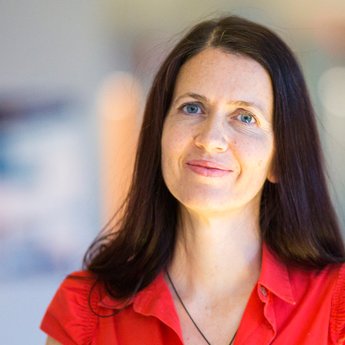 Rada Mihalcea is a Professor of Computer Science and Engineering at the University of Michigan and the Director of the Michigan Artificial Intelligence Lab. Her research interests are in computational linguistics, with a focus on lexical semantics, multilingual natural language processing, and computational social sciences. She serves or has served on the editorial boards of the Journals of Computational Linguistics, Language Resources and Evaluations, Natural Language Engineering, Journal of Artificial Intelligence Research, IEEE Transactions on Affective Computing, and Transactions of the Association for Computational Linguistics. She was a program co-chair for EMNLP 2009 and ACL 2011, and a general chair for NAACL 2015 and *SEM 2019. She is an ACM Fellow, a AAAI Fellow, and currently serves as the President of the ACL. She is the recipient of a Sarah Goddard Power award (2019) for her contributions to diversity in science, and the recipient of a Presidential Early Career Award for Scientists and Engineers awarded by President Obama (2009).
Rada Mihalcea is a Professor of Computer Science and Engineering at the University of Michigan and the Director of the Michigan Artificial Intelligence Lab. Her research interests are in computational linguistics, with a focus on lexical semantics, multilingual natural language processing, and computational social sciences. She serves or has served on the editorial boards of the Journals of Computational Linguistics, Language Resources and Evaluations, Natural Language Engineering, Journal of Artificial Intelligence Research, IEEE Transactions on Affective Computing, and Transactions of the Association for Computational Linguistics. She was a program co-chair for EMNLP 2009 and ACL 2011, and a general chair for NAACL 2015 and *SEM 2019. She is an ACM Fellow, a AAAI Fellow, and currently serves as the President of the ACL. She is the recipient of a Sarah Goddard Power award (2019) for her contributions to diversity in science, and the recipient of a Presidential Early Career Award for Scientists and Engineers awarded by President Obama (2009).
Talk title: "The Other Side(s) of Word Embeddings"
Word embeddings have largely been a "success story" in our field. They have enabled progress in numerous language processing applications, and have facilitated the application of large-scale language analyses in other domains, such as social sciences and humanities. While less talked about, word embeddings also have many shortcomings -- instability, lack of transparency, biases, and more. In this talk, I will review the "ups" and "downs" of word embeddings, discuss tradeoffs, and chart potential future research directions to address some of the downsides of these word representations.Dr. Sujith Ravi
Director at Amazon Alexa AI
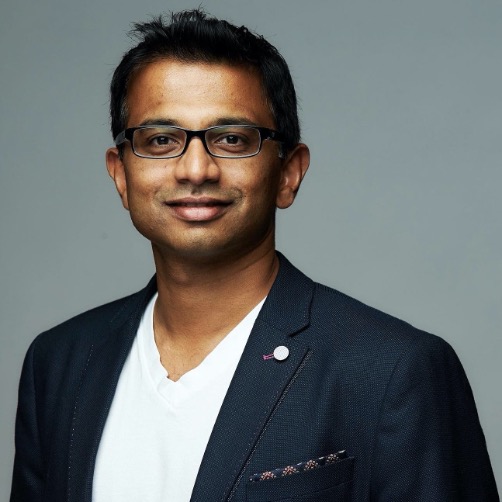 Dr. Sujith Ravi is Founder and CEO at Stealth startup. Previously, he was the Director of Amazon Alexa AI where he was leading efforts to build the future of multimodal conversational AI experiences at scale. Prior to that, he was leading and managing multiple ML and NLP teams and efforts in Google AI. He founded and headed Google’s large-scale graph-based semi-supervised learning platform, deep learning platform for structured and unstructured data as well as on-device machine learning efforts for products used by billions of people in Search, Ads, Assistant, Gmail, Photos, Android, Cloud and YouTube. These technologies power conversational AI (e.g., Smart Reply), Web and Image Search; On-Device predictions in Android and Assistant; and ML platforms like Neural Structured Learning in TensorFlow, Learn2Compress as Google Cloud service, TensorFlow Lite for edge devices.
Dr. Sujith Ravi is Founder and CEO at Stealth startup. Previously, he was the Director of Amazon Alexa AI where he was leading efforts to build the future of multimodal conversational AI experiences at scale. Prior to that, he was leading and managing multiple ML and NLP teams and efforts in Google AI. He founded and headed Google’s large-scale graph-based semi-supervised learning platform, deep learning platform for structured and unstructured data as well as on-device machine learning efforts for products used by billions of people in Search, Ads, Assistant, Gmail, Photos, Android, Cloud and YouTube. These technologies power conversational AI (e.g., Smart Reply), Web and Image Search; On-Device predictions in Android and Assistant; and ML platforms like Neural Structured Learning in TensorFlow, Learn2Compress as Google Cloud service, TensorFlow Lite for edge devices.
Dr. Ravi has authored over 100 scientific publications and patents in top-tier machine learning and natural language processing conferences. His work has been featured in press: Wired, Forbes, Forrester, New York Times, TechCrunch, VentureBeat, Engadget, New Scientist, among others, and also won the SIGDIAL Best Paper Award in 2019 and ACM SIGKDD Best Research Paper Award in 2014. For multiple years, he was a mentor for Google Launchpad startups. Dr. Ravi was the Co-Chair (AI and deep learning) for the 2019 National Academy of Engineering (NAE) Frontiers of Engineering symposium. He was also the Co-Chair for ACL 2021, EMNLP 2020, ICML 2019, NAACL 2019, and NeurIPS 2018 ML workshops and regularly serves as Senior/Area Chair and PC of top-tier machine learning and natural language processing conferences like NeurIPS, ICML, ACL, NAACL, AAAI, EMNLP, COLING, KDD, and WSDM.
Talk title: "Powering Deep Learning with Structure"
Deep learning advances have enabled us to build high-capacity intelligent systems capable of perceiving and understanding the real world from text, speech and images. Yet, building real-world, scalable intelligent systems from “scratch” remains a daunting challenge as it requires us to deal with ambiguity, data sparsity and solve complex language & visual, dialog and generation problems. In this talk, I will present powerful neural structured learning frameworks, precursor to widely-popular GNNs, that tackle the above challenges by leveraging the power of deep learning combined with graphs which allow us to model the structure inherent in language and visual data. We use graph-based machine learning as a computing mechanism to design efficient algorithms and address these challenges. Our neural graph learning approach handles massive graphs with billions of vertices and trillions of edges and has been successfully used to power real-world applications at industry scale for response generation, image recognition and multimodal experiences. I will highlight our work on using neural graph learning with a novel class of attention mechanisms over Euclidean and Hyperbolic spaces to model complex patterns in Knowledge Graphs for learning entity relationships, predicting missing facts and performing multi-hop reasoning. Finally, I will describe recent work on leveraging graphs for multi-document news summarization.Contact information
- LinkedIn: Dr. Ravi's LinkedIn
- Web: Personal page.
- Twitter: @ravisujith
Dr. Heng Ji
Professor at the University of Illinois at Urbana-Champaign
 Heng Ji is a professor at Computer Science Department, and an affiliated faculty member at Electrical and Computer Engineering Department of University of Illinois at Urbana-Champaign. She is an Amazon Scholar. She received her B.A. and M. A. in Computational Linguistics from Tsinghua University, and her M.S. and Ph.D. in Computer Science from New York University. Her research interests focus on Natural Language Processing, especially on Multimedia Multilingual Information Extraction, Knowledge Base Population and Knowledge-driven Generation. She was selected as "Young Scientist" and a member of the Global Future Council on the Future of Computing by the World Economic Forum in 2016 and 2017. The awards she received include "AI's 10 to Watch" Award by IEEE Intelligent Systems in 2013, NSF CAREER award in 2009, Google Research Award in 2009 and 2014, IBM Watson Faculty Award in 2012 and 2014, Bosch Research Award in 2014-2018, and ACL2020 Best Demo Paper award. She was invited by the Secretary of the U.S. Air Force and AFRL to join Air Force Data Analytics Expert Panel to inform the Air Force Strategy 2030. She is the lead of many multi-institution projects and tasks, including the U.S. ARL projects on information fusion and knowledge networks construction, DARPA DEFT Tinker Bell team and DARPA KAIROS RESIN team. She has coordinated the NIST TAC Knowledge Base Population task since 2010. She has served as the Program Committee Co-Chair of many conferences including NAACL-HLT2018. She is elected as the North American Chapter of the Association for Computational Linguistics (NAACL) secretary 2020-2021. Her research has been widely supported by the U.S. government agencies (DARPA, ARL, IARPA, NSF, AFRL, DHS) and industry (Amazon, Google, Bosch, IBM, Disney).
Heng Ji is a professor at Computer Science Department, and an affiliated faculty member at Electrical and Computer Engineering Department of University of Illinois at Urbana-Champaign. She is an Amazon Scholar. She received her B.A. and M. A. in Computational Linguistics from Tsinghua University, and her M.S. and Ph.D. in Computer Science from New York University. Her research interests focus on Natural Language Processing, especially on Multimedia Multilingual Information Extraction, Knowledge Base Population and Knowledge-driven Generation. She was selected as "Young Scientist" and a member of the Global Future Council on the Future of Computing by the World Economic Forum in 2016 and 2017. The awards she received include "AI's 10 to Watch" Award by IEEE Intelligent Systems in 2013, NSF CAREER award in 2009, Google Research Award in 2009 and 2014, IBM Watson Faculty Award in 2012 and 2014, Bosch Research Award in 2014-2018, and ACL2020 Best Demo Paper award. She was invited by the Secretary of the U.S. Air Force and AFRL to join Air Force Data Analytics Expert Panel to inform the Air Force Strategy 2030. She is the lead of many multi-institution projects and tasks, including the U.S. ARL projects on information fusion and knowledge networks construction, DARPA DEFT Tinker Bell team and DARPA KAIROS RESIN team. She has coordinated the NIST TAC Knowledge Base Population task since 2010. She has served as the Program Committee Co-Chair of many conferences including NAACL-HLT2018. She is elected as the North American Chapter of the Association for Computational Linguistics (NAACL) secretary 2020-2021. Her research has been widely supported by the U.S. government agencies (DARPA, ARL, IARPA, NSF, AFRL, DHS) and industry (Amazon, Google, Bosch, IBM, Disney).
Talk title: "How to Write a History Book?"
Understanding events and communicating about events are fundamental human activities. However, it's much more difficult to remember event-related information compared to entity-related information. For example, most people in Mexico will be able to answer the question "Which city is Universidad Nacional Autónoma de México is located in?", but very few people can give a complete answer to "Who died from COVID-19?". Human-written history books are often incomplete and highly biased because "History is written by the victors". In this talk I will present a new research direction on event-centric knowledge base construction from multimedia multilingual sources, and then perform consistency checking and reasoning to detect and correct misinformation. Our minds represent events at various levels of granularity and abstraction, which allows us to quickly access and reason about old and new scenarios. Progress in natural language understanding and computer vision has helped automate some parts of event understanding but the current, first-generation, automated event understanding is overly simplistic since it is local, sequential and flat. Real events are hierarchical and probabilistic. Understanding them requires knowledge in the form of a repository of abstracted event schemas (complex event templates), understanding the progress of time, using background knowledge, and performing global inference. Our approach to second-generation event understanding builds on an incidental supervision approach to inducing an event schema repository that is probabilistic, hierarchically organized and semantically coherent. This facilitates inducing higher-level event representations analysts can interact with, and allow them to guide further reasoning and extract events by constructing a novel structured cross-media cross-lingual common semantic space. To understand the many facets of such complex, dynamic situations, we have developed various novel methods to induce hierarchical narrative graph schemas and apply them to enhance end-to-end joint neural Information Extraction, event coreference resolution, event time prediction, and misinformation detection.Dr. Sebastian Ruder
Researcher at DeepMind
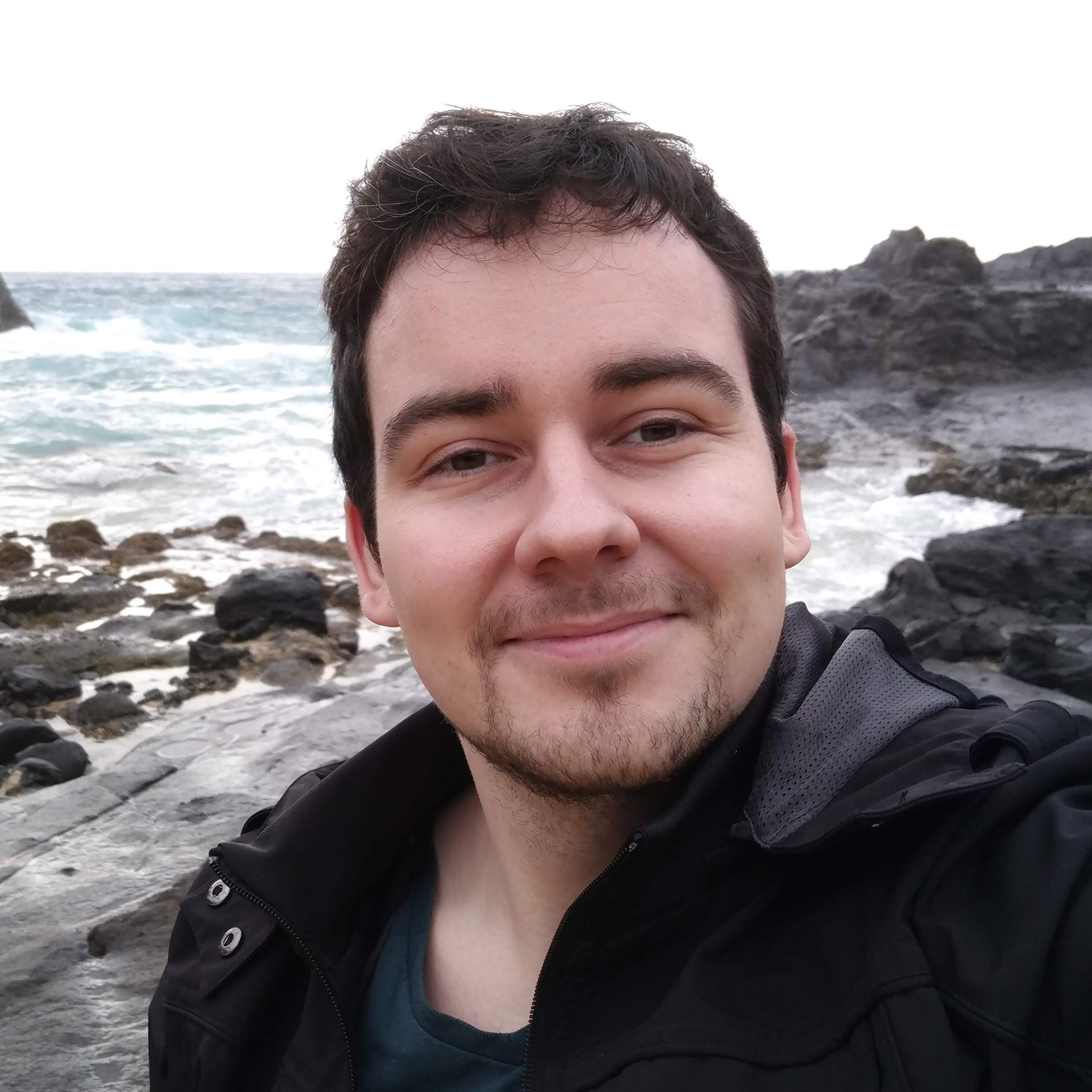 Sebastian Ruder is a research scientist in the Language team at DeepMind, London. He completed his PhD in Natural Language Processing and Deep Learning at the Insight Research Centre for Data Analytics, while working as a research scientist at Dublin-based text analytics startup AYLIEN. Previously, he studied Computational Linguistics at the University of Heidelberg, Germany and at Trinity College, Dublin. He is interested in transfer learning for NLP and making ML and NLP more accessible.
Sebastian Ruder is a research scientist in the Language team at DeepMind, London. He completed his PhD in Natural Language Processing and Deep Learning at the Insight Research Centre for Data Analytics, while working as a research scientist at Dublin-based text analytics startup AYLIEN. Previously, he studied Computational Linguistics at the University of Heidelberg, Germany and at Trinity College, Dublin. He is interested in transfer learning for NLP and making ML and NLP more accessible.
Talk title: "Challenges in Cross-lingual Transfer Learning"
Research in natural language processing (NLP) has seen striking advances in recent years but most of this success has focused on English. In this talk, I will give an overview of approaches that transfer knowledge across languages and enable us to scale NLP models to more of the world's 7,000 languages. I will cover open challenges in this area such as evaluation in the face of limited labelled data, generalizing to low-resource languages and different scripts, and dealing with erroneous segmentations and discuss approaches that help mitigate them.Contact information
- Web: Personal page.
- Twitter: @seb_ruder
Tutorials
Dr. Tanja Samardžić
Lecturer at University of Zurich, Switzerland
 I am a computational linguist with a background in language theory and machine learning. My research is about developing computational text processing methods and using them to test theoretical hypotheses on how language actually works. I hold a PhD in Computational linguistics from the University of Geneva, where I studied in the group Computational Learning and Computational Linguistics led by Prof Paola Merlo and Dr James Henderson. I am committed to promoting and facilitating the use of computational approaches in the study of language.
I am a computational linguist with a background in language theory and machine learning. My research is about developing computational text processing methods and using them to test theoretical hypotheses on how language actually works. I hold a PhD in Computational linguistics from the University of Geneva, where I studied in the group Computational Learning and Computational Linguistics led by Prof Paola Merlo and Dr James Henderson. I am committed to promoting and facilitating the use of computational approaches in the study of language.
Tutorial: “Language (de)standardisation and NLP”
The term non-standard language covers all linguistic expressions not conforming to an official orthography and pronunciation. Such expressions include dialects (written and spoken), historical texts and social media posts. They require special processing techniques in order to deal with the fact that the same word can be written (or pronounced) very differently in the same text (or recording). This tutorial will provide an introduction to the notion of language standard and an overview of the challenges that increasingly non-standard writing and speech pose to NLP. We will try out text normalisation as a technique to deal with noisy text and discuss other potential approaches.Contact information
- Web: Personal page.
Dr. Alexander Gelbukh y Dr. Grigori Sidorov
Full Professors at CIC-IPN, Mexico
 Dr. Alexander Gelbukh received his MSc degree in mathematics, with distinction, from the M.V. Lomonosov Moscow State University, Russia, in 1990. He received his PhD degree in computer science from the All-Russian Institute for Scientific and Technical Information, also in Moscow, in 1995. Since 1997, he serves as Research Professor and Head of the Natural Language Processing Laboratory of the Computer Research Center (CIC) of the Instituto Politécnico Nacional (IPN), Mexico. He has been Distinguished Visiting Professor at the Chung-Ang University, South Korea, in 2003–2004, Visiting Research Fellow at the Waseda University, Japan, in 2010–2011, and Visiting Research Fellow at the University of Wolverhampton, UK, in 2018–2019. He is a visiting professor at the National University of Colombia (UNAL) since 2007 and an Honorary Professor at the Amity University, India, since 2017. He is a National Researcher of Mexico (member of the SNI) since 1998, currently at the level 3 (the highest). He is a member of the Mexican Academy of Sciences since 2000, a founding member of the Mexican Academy of Computing since 2015, a Distinguished Honorary Member (Fellow) of the International Engineering and Technology Institute, Hong Kong and USA, since 2015, and a Fellow (emeritus member) of the Mexican Society of Artificial Intelligence (SMIA). He has been the founding president of the Mexican Association for Natural Language Processing (AMPLN) for several years since 2000 and president of the Mexican Society of Artificial Intelligence (SMIA) in 2013–2014.
Dr. Alexander Gelbukh received his MSc degree in mathematics, with distinction, from the M.V. Lomonosov Moscow State University, Russia, in 1990. He received his PhD degree in computer science from the All-Russian Institute for Scientific and Technical Information, also in Moscow, in 1995. Since 1997, he serves as Research Professor and Head of the Natural Language Processing Laboratory of the Computer Research Center (CIC) of the Instituto Politécnico Nacional (IPN), Mexico. He has been Distinguished Visiting Professor at the Chung-Ang University, South Korea, in 2003–2004, Visiting Research Fellow at the Waseda University, Japan, in 2010–2011, and Visiting Research Fellow at the University of Wolverhampton, UK, in 2018–2019. He is a visiting professor at the National University of Colombia (UNAL) since 2007 and an Honorary Professor at the Amity University, India, since 2017. He is a National Researcher of Mexico (member of the SNI) since 1998, currently at the level 3 (the highest). He is a member of the Mexican Academy of Sciences since 2000, a founding member of the Mexican Academy of Computing since 2015, a Distinguished Honorary Member (Fellow) of the International Engineering and Technology Institute, Hong Kong and USA, since 2015, and a Fellow (emeritus member) of the Mexican Society of Artificial Intelligence (SMIA). He has been the founding president of the Mexican Association for Natural Language Processing (AMPLN) for several years since 2000 and president of the Mexican Society of Artificial Intelligence (SMIA) in 2013–2014.
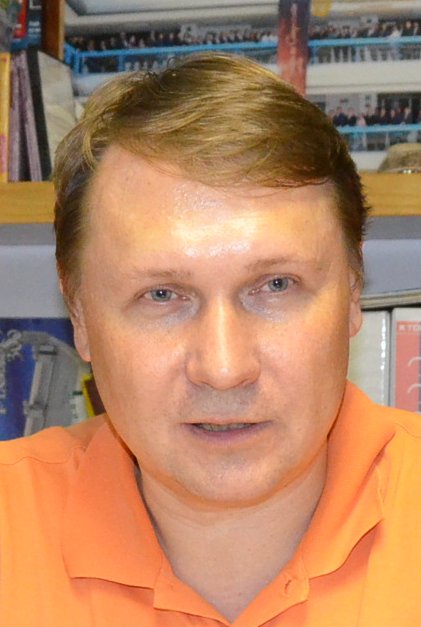
Tutorial: Natural Language Processing, Introduction
In the first part of the tutorial, the motivation behind the study of natural language processing will be discussed. Some of its applications will be presented, the dangers that the development of this area entails (and from which we must learn to defend ourselves), as well as in a very brief way some methods that are used. Finally, an invitation will be made to study a Master or PhD (with full scholarship) in this area. In the second part, general ideas related to the field of artificial intelligence will be presented. The vector space model, cosine similarity, feature selection and types of features (bag of words, n-grams of various types, syntactic n-grams) and the values of the features (tf, tf-idf) will be briefly described. The application of machine learning methods to the analysis of texts will be presented. Various applications will be conceptually described: for example, how the author profiling (gender, age), spam detection, and authorship attribution, among others, can be automatically performed.Contact information
- Web: Alexander Gelbukh
- Web: Grigori Sidorov
Dr. Leticia C. Cagnina
Professor at the Universidad Nacional de San Luis, Argentina
 Doctora en Ciencias de la Computación en la Universidad Nacional de San Luis (UNSL-Argentina), Magister y Licenciada en Ciencias de la Computación en la misma universidad. Investigadora Adjunta en el Consejo Nacional de Investigaciones Científicas y Técnicas (CONICET-Argentina). Profesora en la UNSL en carreras de grado y posgrado. Actualmente co-dirige el proyecto de investigación denominado "Aprendizaje automático y toma de decisiones en sistemas inteligentes para la Web" (LIDIC-UNSL) y participa en la dirección de trabajos finales de carreras de grado y posgrado. Ha realizado estancias de investigación en el CINVESTAV-Universidad Politécnica Nacional (México), Universidad del Egeo (Grecia) y en la Universidad Politécnica de Valencia (España). Posee más de 40 publicaciones a la fecha, entre las que figuran artículos en revistas con factor de impacto, capítulos en libros y trabajos en congresos. Dentro de los intereses actuales de investigación se encuentra el procesamiento automático del lenguaje natural, el estudio de representaciones para textos, perfilado de autor, detección automática de riesgos en la web (depresión, anorexia, ciberacoso, etc.), spam de opiniones y métricas de calidad para Wikipedia.
Doctora en Ciencias de la Computación en la Universidad Nacional de San Luis (UNSL-Argentina), Magister y Licenciada en Ciencias de la Computación en la misma universidad. Investigadora Adjunta en el Consejo Nacional de Investigaciones Científicas y Técnicas (CONICET-Argentina). Profesora en la UNSL en carreras de grado y posgrado. Actualmente co-dirige el proyecto de investigación denominado "Aprendizaje automático y toma de decisiones en sistemas inteligentes para la Web" (LIDIC-UNSL) y participa en la dirección de trabajos finales de carreras de grado y posgrado. Ha realizado estancias de investigación en el CINVESTAV-Universidad Politécnica Nacional (México), Universidad del Egeo (Grecia) y en la Universidad Politécnica de Valencia (España). Posee más de 40 publicaciones a la fecha, entre las que figuran artículos en revistas con factor de impacto, capítulos en libros y trabajos en congresos. Dentro de los intereses actuales de investigación se encuentra el procesamiento automático del lenguaje natural, el estudio de representaciones para textos, perfilado de autor, detección automática de riesgos en la web (depresión, anorexia, ciberacoso, etc.), spam de opiniones y métricas de calidad para Wikipedia.
Tutorial: “Redes Neuronales: conceptos básicos y aplicaciones”
En este tutorial se pretende dar una visión introductoria al paradigma de las Redes Neuronales Artificiales (RNA). Se describirá brevemente el funcionamiento de las RNA y se mostrará cómo a través de la combinación de unidades simples de procesamiento (neuronas) interconectadas operando de forma paralela, se consigue resolver problemas complejos. Mediante la utilización de las notebooks de Colab, se desarrollarán aplicaciones que implementen RNA para el reconocimiento de formas o patrones, predicción y clasificación, utilizando el lenguaje Python. Como objetivo final se pretende proporcionar al participante, las bases que le permitan discernir cuándo y cómo poder aplicar este modelo computacional, entendiendo la “magia” que hay detrás de las RNA.Contact information
- Web: Personal page.
Maël Fabien & Juan Pablo Zuluaga
Ph.D. students at Idiap Research Institute, Switzerland

Maël is a Ph.D. student at Idiap Research Institute and EPFL, in speech processing, and applications related to combating organized crime. Maël has a background in Statistics and Data Science, and in widely interested in entrepreneurship and applied ML.
 Juan Pablo Zuluaga is currently working at IDIAP as a jointly PhD student with the École polytechnique fédérale de Lausanne, Switzerland. He is currently working in EU Horizon 2020 project, dedicated to the development of an Automatic Air Traffic Speech Recognition system, allowing to collect, organize and pre-process air-traffic control (voice communication) data from air space. His main interests are automatic speech recognition and speech understanding. Also interested in biomedical imaging and artificial general intelligence.
Juan Pablo Zuluaga is currently working at IDIAP as a jointly PhD student with the École polytechnique fédérale de Lausanne, Switzerland. He is currently working in EU Horizon 2020 project, dedicated to the development of an Automatic Air Traffic Speech Recognition system, allowing to collect, organize and pre-process air-traffic control (voice communication) data from air space. His main interests are automatic speech recognition and speech understanding. Also interested in biomedical imaging and artificial general intelligence.
Tutorial: “An introduction to speech-based technologies for Natural Language Processing applications”
Since the last two decades, the amount of data generated and collected has grown exponentially, and especially through the rise of unstructured data such as images, videos or text. More recently, audio and speech data have gained a large interest, for example through voice assistants. Companies like Google, Facebook, Apple, and Amazon have shown an increasing interest in professionals with skills and tools for 'understanding' and 'transforming' the massive flow of speech data in relevant information. Some of the most important speech-based technologies are voice activity detection, speaker diarization and identification, and automatic speech recognition. These techologies are often used as an input to various NLP applications afterwards. This brief workshop will give you a set of basic tools for grasping the main aspects of speech-based technologies and how they can be implemented in real-life cases.Contact information
- LinkedIn: Maël's LinkedIn
- Blog: Maël's GitHub
- Twitter: Juan's Twitter
Panelists
Dr. Isabelle Augenstein
Professor at the University of Copenhagen
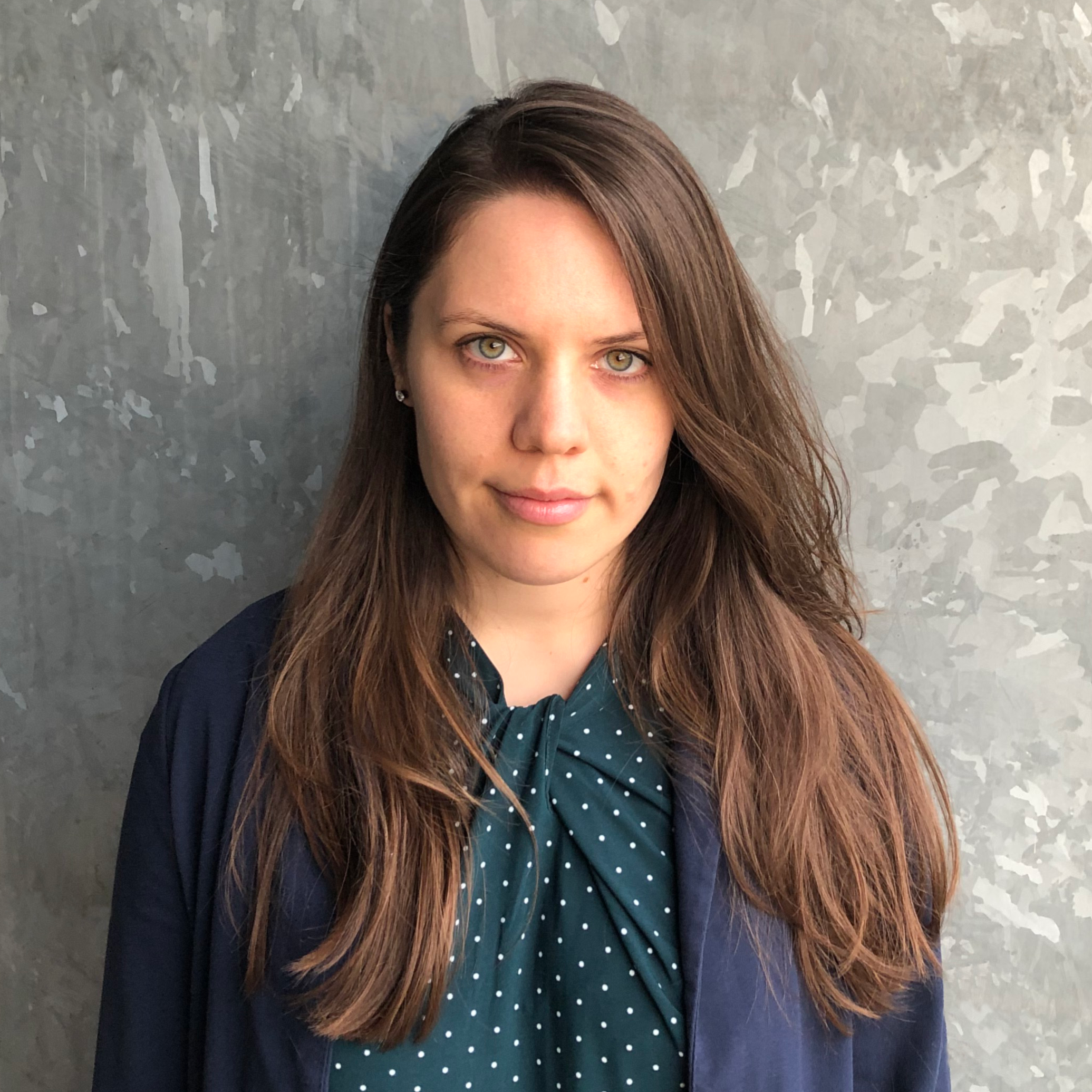 Isabelle Augenstein is an associate professor at the University of Copenhagen, where she heads the Copenhagen Natural Language Understanding research group as well as the Natural Language Processing section. Her main research interests are fact checking, low-resource learning and explainability. Prior to this, she was a postdoctoral researcher at University College London and a PhD student at the University of Sheffield. She is the president of the ACL Special Interest Group on Representation Learning (SIGREP) and maintains the BIG Directory of members of underrepresented groups and supporters in Natural Language Processing.
Isabelle Augenstein is an associate professor at the University of Copenhagen, where she heads the Copenhagen Natural Language Understanding research group as well as the Natural Language Processing section. Her main research interests are fact checking, low-resource learning and explainability. Prior to this, she was a postdoctoral researcher at University College London and a PhD student at the University of Sheffield. She is the president of the ACL Special Interest Group on Representation Learning (SIGREP) and maintains the BIG Directory of members of underrepresented groups and supporters in Natural Language Processing.
Dr. Luciana Benotti
Professor at the Universidad Nacional de Córdoba, Argentina
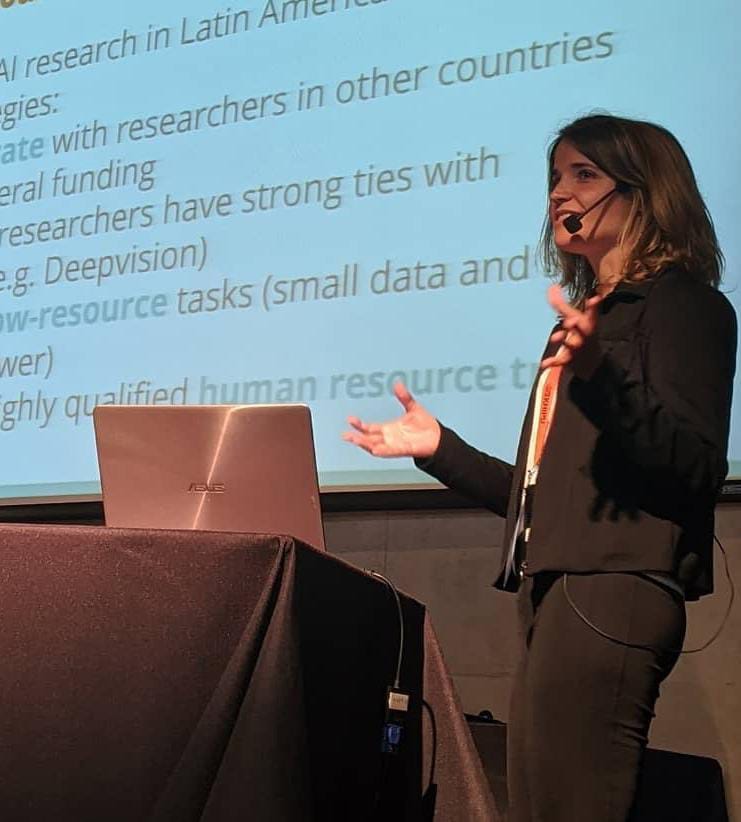 Luciana Benotti es Profesora Asociada en Ciencias de la Computación en la Universidad Nacional de Córdoba e Investigadora en Inteligencia Artificial en CONICET, Argentina. Sus intereses de investigación incluyen diferentes aspectos del procesamiento del lenguaje natural situado e interactivo, como interpretar instrucciones en un diálogo, generar preguntas contextualizadas y decidir cuándo hablar en un sistema de diálogo, entre otros. Está particularmente interesada en cómo las características lingüísticas y las no lingüísticas contribuyen al significado que se transmite durante una conversación. Dichas características incluyen lo que están haciendo los participantes conversacionales mientras hablan, el contexto visual, aspectos temporales, etc. Ha sido científica invitada en la Universidad de Trento (2019), la Universidad de Stanford (2018), la Universidad de Roskilde (2014), la Universidad de Costa Rica (2012) y la Universidad del Sur de California (2010). Tiene un MSc Erasmus Mundus conjunto de la Libera Universitá di Bolzano y la Universidad Politécnica de Madrid y un PhD de la Université de Lorraine. Este año fue elegida como representante latinoamericana para la North American Association for Computational Linguistics NAACL.
Luciana Benotti es Profesora Asociada en Ciencias de la Computación en la Universidad Nacional de Córdoba e Investigadora en Inteligencia Artificial en CONICET, Argentina. Sus intereses de investigación incluyen diferentes aspectos del procesamiento del lenguaje natural situado e interactivo, como interpretar instrucciones en un diálogo, generar preguntas contextualizadas y decidir cuándo hablar en un sistema de diálogo, entre otros. Está particularmente interesada en cómo las características lingüísticas y las no lingüísticas contribuyen al significado que se transmite durante una conversación. Dichas características incluyen lo que están haciendo los participantes conversacionales mientras hablan, el contexto visual, aspectos temporales, etc. Ha sido científica invitada en la Universidad de Trento (2019), la Universidad de Stanford (2018), la Universidad de Roskilde (2014), la Universidad de Costa Rica (2012) y la Universidad del Sur de California (2010). Tiene un MSc Erasmus Mundus conjunto de la Libera Universitá di Bolzano y la Universidad Politécnica de Madrid y un PhD de la Université de Lorraine. Este año fue elegida como representante latinoamericana para la North American Association for Computational Linguistics NAACL.
Dr. Ted Pedersen
Professor at the University of Minnesota, Duluth
 Ted Pedersen is a Professor in the Department of Computer Science at the University of Minnesota, Duluth. His research interests are in Natural Language Processing and most recently are focused on computational humor and identifying hate speech, with a particular focus on Islamophobia. His research has previously been supported by the National Institutes of Health (NIH) and a National Science Foundation (NSF) CAREER award. More details are available at http://www.d.umn.edu/~tpederse
Ted Pedersen is a Professor in the Department of Computer Science at the University of Minnesota, Duluth. His research interests are in Natural Language Processing and most recently are focused on computational humor and identifying hate speech, with a particular focus on Islamophobia. His research has previously been supported by the National Institutes of Health (NIH) and a National Science Foundation (NSF) CAREER award. More details are available at http://www.d.umn.edu/~tpederse
Contact information
- Web: Personal page.
Dr. Steven Bethard
Professor at the University of Arizona
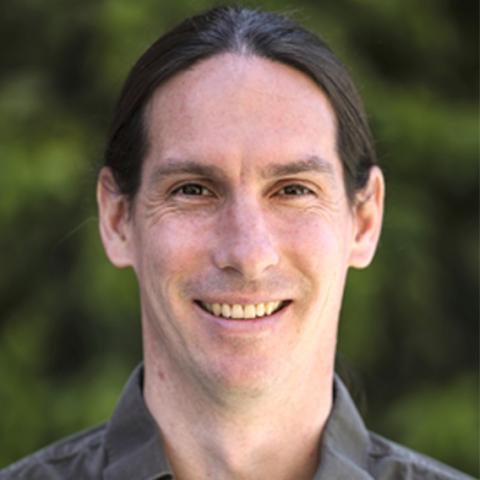 I joined the University of Arizona School of Information in August 2016, after three years as an assistant professor in Computer and Information Science at the University of Alabama at Birmingham. I previously worked as a postdoctoral researcher at Stanford University's Natural Language Processing group, Johns Hopkins University's Human Language Technology Center of Excellence, KULeuven's Language Intelligence and Information Retrieval group in Belgium, and the University of Colorado's Center for Language and Education Research.
My research interests include natural language processing and machine learning theory and applications, including modeling the language of time and timelines, normalizing text to medical and geospatial ontologies, and information extraction models for clinical applications. There is a large community at the University of Arizona pursuing similar natural language processing research. Visit us at: http://nlp.arizona.edu/
I joined the University of Arizona School of Information in August 2016, after three years as an assistant professor in Computer and Information Science at the University of Alabama at Birmingham. I previously worked as a postdoctoral researcher at Stanford University's Natural Language Processing group, Johns Hopkins University's Human Language Technology Center of Excellence, KULeuven's Language Intelligence and Information Retrieval group in Belgium, and the University of Colorado's Center for Language and Education Research.
My research interests include natural language processing and machine learning theory and applications, including modeling the language of time and timelines, normalizing text to medical and geospatial ontologies, and information extraction models for clinical applications. There is a large community at the University of Arizona pursuing similar natural language processing research. Visit us at: http://nlp.arizona.edu/
Contact information
- Web: Personal page.
Dr. Daisuke Kawahara
Professor at the Waseda University
 Daisuke Kawahara received his B.S. and M.S. in Electronic Science and Engineering from Kyoto University in 1997 and 1999, respectively. He obtained his Ph.D. in Informatics from Kyoto University in 2005. He is currently a professor of the department of communications and computer engineering, Waseda University. His research interests center on natural language processing, particularly knowledge acquisition and text understanding.
Daisuke Kawahara received his B.S. and M.S. in Electronic Science and Engineering from Kyoto University in 1997 and 1999, respectively. He obtained his Ph.D. in Informatics from Kyoto University in 2005. He is currently a professor of the department of communications and computer engineering, Waseda University. His research interests center on natural language processing, particularly knowledge acquisition and text understanding.
Dr. Francisco (Paco) Guzmán
Researcher at Facebook
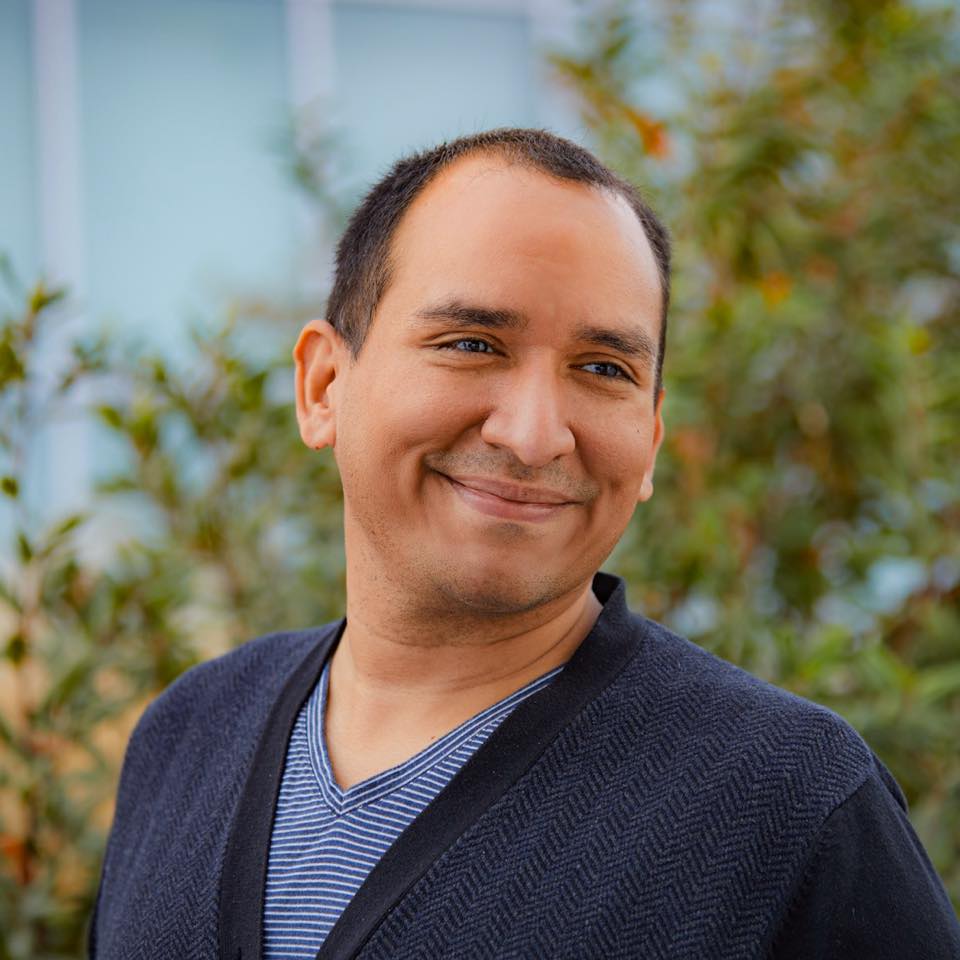 Paco Guzmán is a Research Scientist working on Translations. His research has been focused on several aspects of Machine Translation including low-resource translation, translation mining, evaluation, and quality estimation. Over the years, Paco has been a speaker and panelist on several events dedicated to increasing diversity in AI. He co-founded the Facebook-Georgia Tech co-teaching program. Before joining Facebook in 2016, Paco was a Research Scientist at Qatar Computing Research Institute in Qatar in 2012-2016. He obtained his PhD in 2011 from ITESM (Monterrey Tech) in Mexico. Paco visited Carnegie Mellon University in 2008-2009 where he worked at the Language Technologies Institute.
Paco Guzmán is a Research Scientist working on Translations. His research has been focused on several aspects of Machine Translation including low-resource translation, translation mining, evaluation, and quality estimation. Over the years, Paco has been a speaker and panelist on several events dedicated to increasing diversity in AI. He co-founded the Facebook-Georgia Tech co-teaching program. Before joining Facebook in 2016, Paco was a Research Scientist at Qatar Computing Research Institute in Qatar in 2012-2016. He obtained his PhD in 2011 from ITESM (Monterrey Tech) in Mexico. Paco visited Carnegie Mellon University in 2008-2009 where he worked at the Language Technologies Institute.
Dr. Gabriel Infante-Lopez
Principal Data Science at Proofpoint Inc.
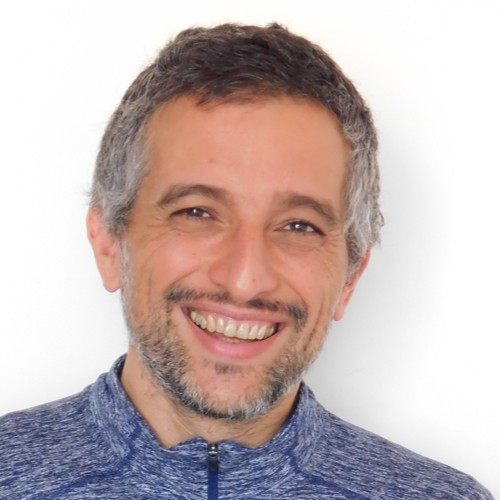 Gabriel Infante-Lopez is a Principal Data Science at Proofpoint Inc. He has a PhD in Natural Language Parsing, and expertise in Formal Methods, Data Mining and Machine Learning. He has more than 15 years' experience in Research and Development. He has worked as Architect designing and implementing Recommendation Engines, Expert Systems for Security, and Machine Learning Lifecycles and Architectures. He was a Principal Engineer at Wildlife Studios, McAfee and Intel. He has produced innovative ideas in Knowledge Representation, Graph Databases and Cyber Security. He has more than 20 international publications and 7 patents. His key interests include security, resilient fault tolerant system, machine learning, big data, knowledge representation and programming languages.
Gabriel Infante-Lopez is a Principal Data Science at Proofpoint Inc. He has a PhD in Natural Language Parsing, and expertise in Formal Methods, Data Mining and Machine Learning. He has more than 15 years' experience in Research and Development. He has worked as Architect designing and implementing Recommendation Engines, Expert Systems for Security, and Machine Learning Lifecycles and Architectures. He was a Principal Engineer at Wildlife Studios, McAfee and Intel. He has produced innovative ideas in Knowledge Representation, Graph Databases and Cyber Security. He has more than 20 international publications and 7 patents. His key interests include security, resilient fault tolerant system, machine learning, big data, knowledge representation and programming languages.